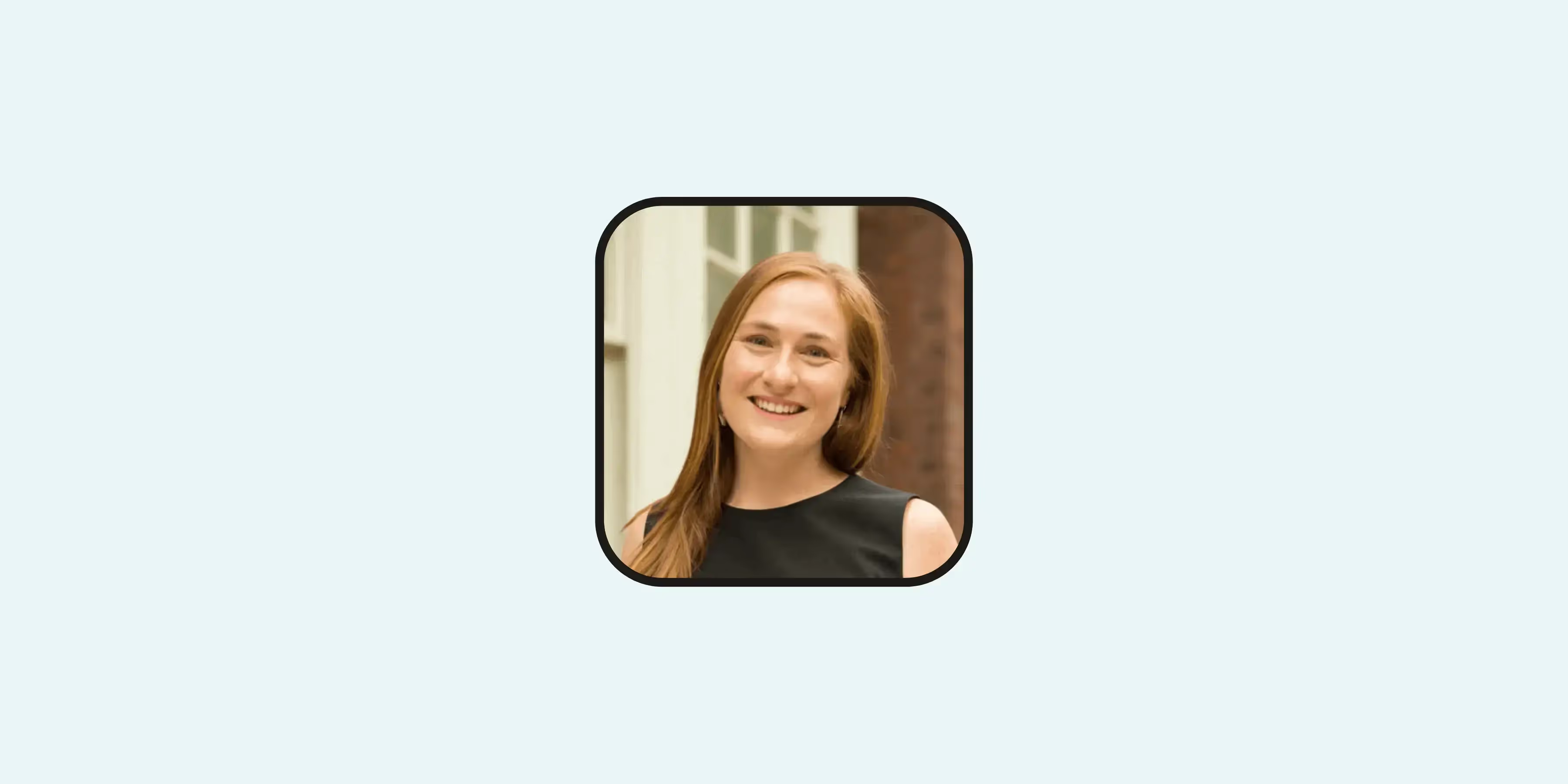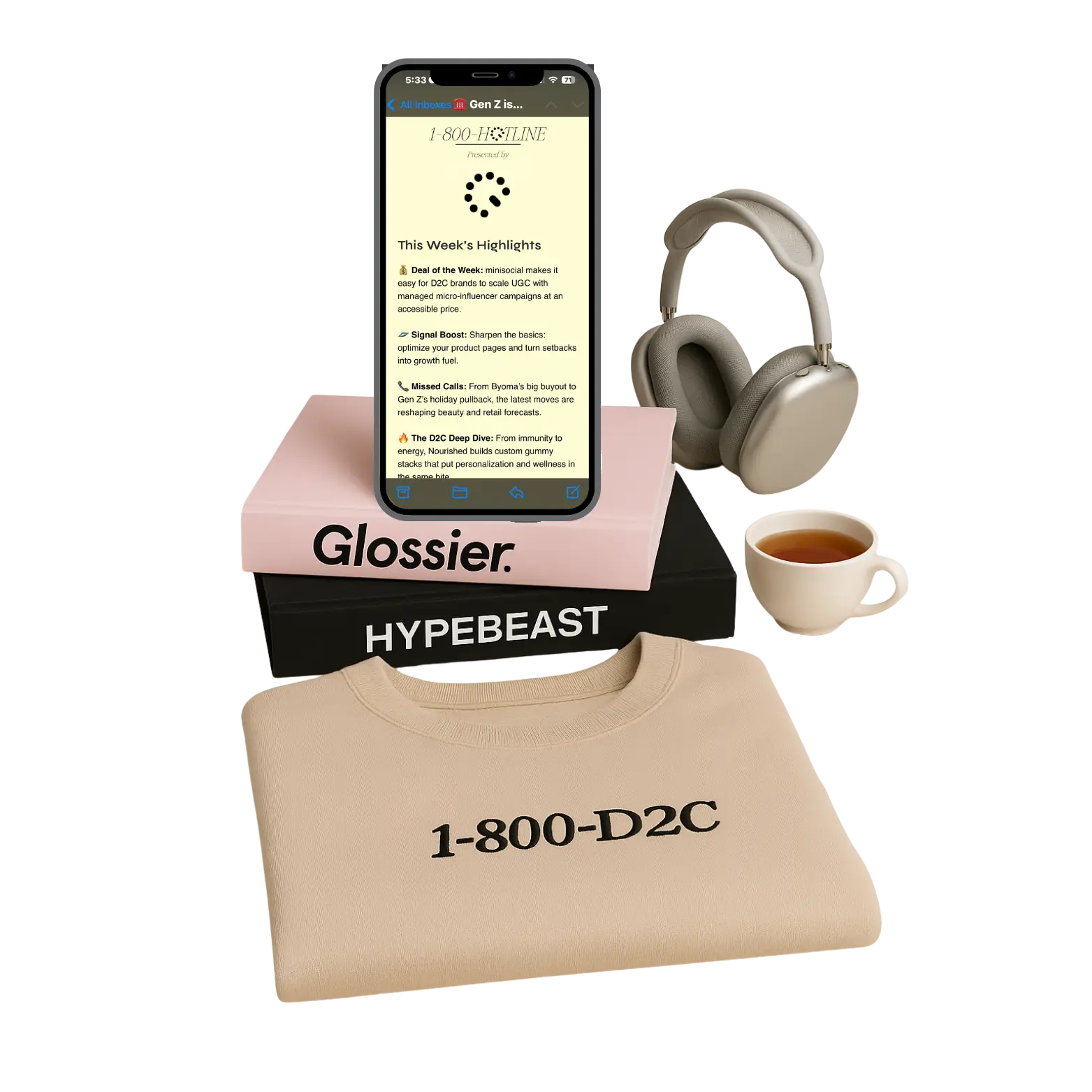
So after I graduated in 2014, I moved to China for two years as a part of an organization called Teach for China. It's the sister program of TFA. I did that because I had studied Asian Studies in school, but also because I was a student athlete and I never had the chance to study abroad.
I really wanted to have that live abroad experience. And while I was over there, one of my co-fellows and I loved going to our local town center and getting custom shoes made or custom clothes made. We continued to talk about what it would look like if we brought that back to the US and started our own company.
Within a few weeks though, we started talking with a lot of women, obviously doing market research, but the women who were also moms really let us in on this insight where shopping for kids' shoes is really hard.
At the time, I had three older sisters all who had kids, and then Eve, my co-founder, had a sister who had just had a child too. So there were a lot of kids in our lives. That’s when we set out to create a mobile first marketplace that would help parents easily size their kids' feet and then recommend the best shoe size in multiple brands that we carried.
Every founder goes through failure and this was failure at its peak form of letting down employees, letting down investors, letting down your co-founder, your friend's, family, everyone who kind of believed in you, your customers. There's just this overwhelming sense of failure and it's really tough.
I knew that I really loved building things and I really loved taking risks, but I needed to have more structure around me for when I dove in again – my number one criteria for what I wanted to do next was find a really great mentor. I needed someone who cared about my career and wanted to help me grow, learn new things and learn and fail. I had a conversation with Jesse Pujji, who I got introduced to via a friend. I knew I loved his energy, he has an incredible entrepreneurial mindset and I knew what he was building was going to provide me with that system to really receive the type of mentorship I wanted.

Gateway X seemed like a perfect fit.. At its core, Gateway X is aiming to become the McKinsey of entrepreneurship. So when someone wants to start a company, or has an idea, we work to incubate it from a 0 -> 1. We do that by co-creating companies that can benefit from the studios unfair advantages in growth marketing and customer acquisition.
One thing that's very different about Gateway X is the focus on generating traction quickly, not just finding funding.We want these companies to grow profitably. The company needs to figure a lot of things out, make mistakes, but ultimately in 18 months time, it should be a profitable company that can continue scaling or can transfer learnings to other companies in our portfolio.
So the whole goal really is to just build an ecosystem of both D2C and B2B companies inside of Gateway X – we currently have Unbloat, Aux Insights, Kahani and a few more in the pipeline for this year.
I joined as a part-time consultant last May and I mainly was helping with customer research and some marketing channels like email, SMS and affiliate. Within two months I knew that I liked being in that environment. I didn't know anything really about probiotics or the supplement space, but we had a ton of customers that really loved the product. And so that was a good sign too.
I joined full-time last September and I became CEO just 3 weeks later. I've been CEO for about a year now. When I joined, we were doing about $75,000 of top line revenue. We had low margins, like 60% margin. The main issue was that our marketing efficiency was really poor and we just really hadn't figured out anything about how to scale the brand.

I was, and still am, the only full-time, US-based employee. We have two Growth Assistants, which has been critical to our success. One challenge we faced was cracking Facebook – Jesse comes from the world of Facebook. He built one of the first Facebook agencies in Ampush.
When I took over as CEO, we had a part-time contractor who was helping us do creative, run strategy and optimize on the platform.
I really didn’t know much about Facebook then. CPA, CPC, CPM – I didn’t know any of those metrics. So Jesse and I talked and we decided that I needed to really commit and learn the channel in order to scale Unbloat. So that’s exactly what we did.
Within 6 weeks, I was managing $75,000/month in Facebook spend when I had never launched an ad before. I had no idea what I was doing.
A year later now we've doubled our ROAS and we’re on track to do ~$4 million in sales this year. I could talk about so many challenges, but figuring out Facebook was the unlock for our brand and what’s gotten us to this point.
So the business is actually named Un Co LLC and our first product is “Bloat” – there are a ton of products we want to create under the umbrella. Unwind, Unwrinkle and so forth. So, in five years, we want to be a $50 million brand that provides the highest quality supplements for women entering menopause.
That's one piece I didn't talk about, but a key unlock for us was realizing that bloating is really severe when women are starting to go through perimenopause. It's a phase of their life that lasts up to 15 years and because their metabolism slows and their bodies change, bloating becomes a constant issue.
They’re a really big customer target for us and are definitely the inspiration for future products.

The first thing I do every morning is look at our daily reporting. I look at yesterday's revenue, new customer volume, returning customer volume and SKU breakdowns. I then look at our marketing channels, how much we spent, CPA and ROAS. My day starts the same each morning.
Our numbers and metrics are the #1 thing we take pride in here at Unbloat and Gateway X – and that starts with Jesse setting the standard for us.
Then from there, I’ll normally spend a solid 2-3 hours on a specific project each day. For example, we're trying to hire video editors right now. So I go deep on the process for recruiting, vetting, onboarding and to create that system.
Then towards the end of the day, it’s mostly finance or operations-related projects – do I need to order more inventory? How are we forecasting for the rest of the year? How is cash flow?

Create ultra-customizable landing pages published directly to Shopify, purpose-built for high-growth e-commerce teams. Replo combines powerful design flexibility with top-tier speed, ensuring your Shopify store stays optimized. Maintain brand consistency at scale with saved sections and design systems, while integrated analytics and A/B testing let you track and optimize—all without a developer.

Motion is a Creative Analytics and Reporting platform trusted by brands like Vuori, Keeps and Ridge. Learn which ad creatives are working and visually share insights with teammates and partners. Motion eliminates guesswork from the creative process to help maximize the impact from paid social.

Okendo is the customer marketing platform trusted by 18,000+ brands, including SKIMS, Rhode, and Oh Polly. With Reviews, Loyalty, Referrals, Quizzes, and Surveys all in one place, Okendo helps brands turn shoppers into Superfans by showcasing customer feedback, rewarding engagement, and collecting insights that fuel personalized marketing and long-term growth.
For reporting, we use Triple Whale. For Facebook creative, we're using Canva and Motion. Our team also uses Foreplay to collect creative, ideas and organize things. Smartrr for subscriptions. Okendo for reviews.
We use Grapevine for creator sourcing and ad creative. They definitely have the best backend platform for brands to manage campaigns with creators, get footage, statics, articles and whitelisting. It's definitely been the most seamless experience working with them.
My favorite tool of 2023 has to be Replo.
I am obsessed with Replo. I can build landing pages myself and look like a developer. It is the best tool for A/B testing – different landing pages, making them shoppable, not shoppable, editorial, non-editorial. etc.. Anything I want to do, I can do by just using a different brand's best landing page and auto-publish it to Shopify. We have about 7 landing pages running now.
What we find a lot of success with is leveraging the influencer on our landing pages that we feature in our ads. It converts better. I'm a big fan of Replo.
Read More D2C Founder Interviews
Discover new D2C brands, new eCommerce tools and read in-depth founder reviews each week.
